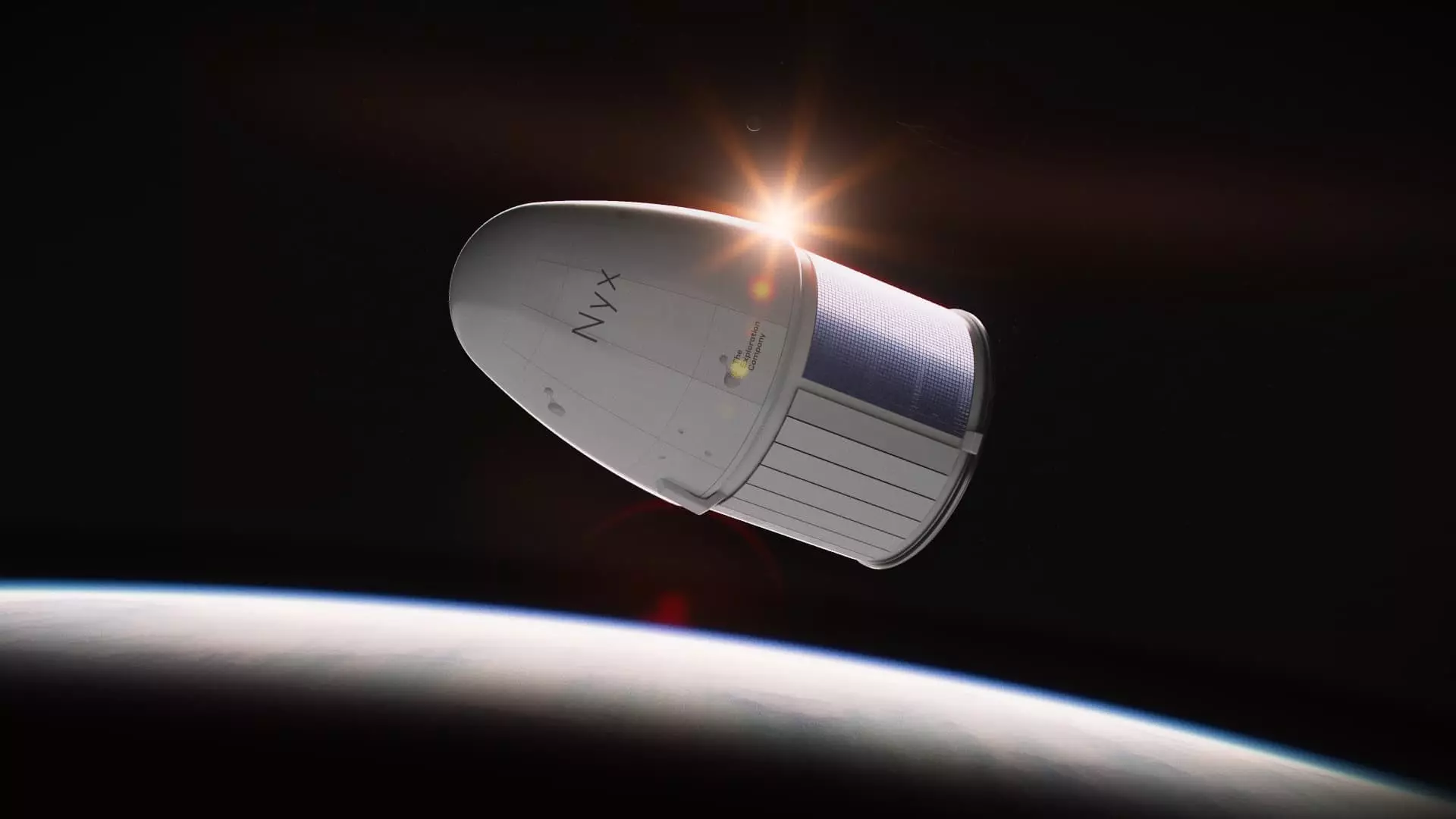The Exploration Company (TEC) recently made headlines with its impressive fundraising achievement of $160 million, aimed at advancing the development of its reusable capsule, Nyx. This significant financial backing, led by prominent venture capital firms such as Balderton Capital and Plural, signals a growing interest and investment in space transportation. Notably, contributions from government-backed entities like French Tech Souveraineté and Germany’s DeepTech & Climate Fonds further showcase the importance of collaborative funding in pushing technological boundaries.
TEC’s venture is particularly noteworthy in an era where space exploration is no longer the exclusive domain of government agencies. This influx of capital not only demonstrates investor confidence in TEC’s vision but also highlights a broader trend towards commercial space travel proliferating globally. As countries increasingly prioritize space exploration, firms like TEC are positioned to pioneer new pathways for transporting both astronauts and cargo to and from space stations.
At the heart of TEC’s mission is Nyx, designed to operate as a robust solution for aerial transportation beyond Earth’s atmosphere. Capable of being launched aboard rockets, Nyx stands out for its reusability—a pivotal feature that aligns with contemporary desires for sustainable space travel. The ability to return to Earth’s atmosphere after delivering its payload makes Nyx a compelling option for missions not just in terms of cost-effectiveness but also in environmental impact.
CEO Hélène Huby’s insights into the evolving space market reveal a substantial uptick in demand, attributing growth to a diverse array of nations aspiring to enter the space race. With projections indicating a steady growth rate of over 10% per annum, the urgency for reliable space transportation is palpable. This context creates a significant window of opportunity for TEC to position itself as a leading provider of these essential services, particularly for European missions, as the continent seeks to bolster its presence in the competitive landscape of space exploration.
As TEC ventures to establish a definitive European identity in space logistics, the initiative reinforces a fundamental desire for autonomy in space projects. Hélène Huby’s statement about the necessity for Europe to develop its own capabilities encapsulates the strategic motivations behind this endeavor. The reliance on dominant players such as SpaceX forms a critical dependency that many nations are keen to mitigate. By developing Nyx and engaging in international contracts, TEC is paving the way for a self-sufficient European space industry.
Contracts worth a staggering $800 million, including collaborations with ambitious projects like Starlab and Axiom Space, indicate that other companies are recognizing the value of TEC’s offering. The decision to develop Nyx further not only illustrates TEC’s commitment to innovation but also signals a future where Europe can independently manage its space missions. The anticipated launches in 2024 and 2028 mark significant milestones, not merely for TEC, but for Europe’s entry as a formidable player in global space exploration.
The landscape of space exploration is evolving with notable activity not only from the United States but also from rising powers like China and India. Projects such as NASA’s Gateway, intended to be the first moon-orbiting space station, highlight an escalating competition and collaboration in this frontier. As a reaction to these developments, TEC’s perspective on cargo transport is highly strategic. With an influx of astronauts going to space alongside an increased need for cargo transport to support these missions, the dynamics of space logistics are set to transform.
Huby’s foresight in positioning TEC as a key contributor to technology that aids in the return of cargo to Earth highlights a comprehensive understanding of the industry’s trajectory. This strategic approach ensures that as the demand for space travel grows, so will the need for coordinated and efficient logistics to support these endeavors.
With their recent advancements and financial support, The Exploration Company stands at the threshold of exciting possibilities. The innovative design of the Nyx capsule has the potential to revolutionize how humans and materials travel beyond our planet. The collective excitement surrounding space exploration, growth opportunities in the sector, and emerging technologies all hint at a future where space travel is more accessible than ever.
As TEC forges ahead, growing its operations and capabilities, the company may not only be crafting a leading European space endeavor but also reshaping the global landscape of space logistics, providing solutions that promise to meet the challenges of a new age of exploration.


Leave a Reply
You must be logged in to post a comment.